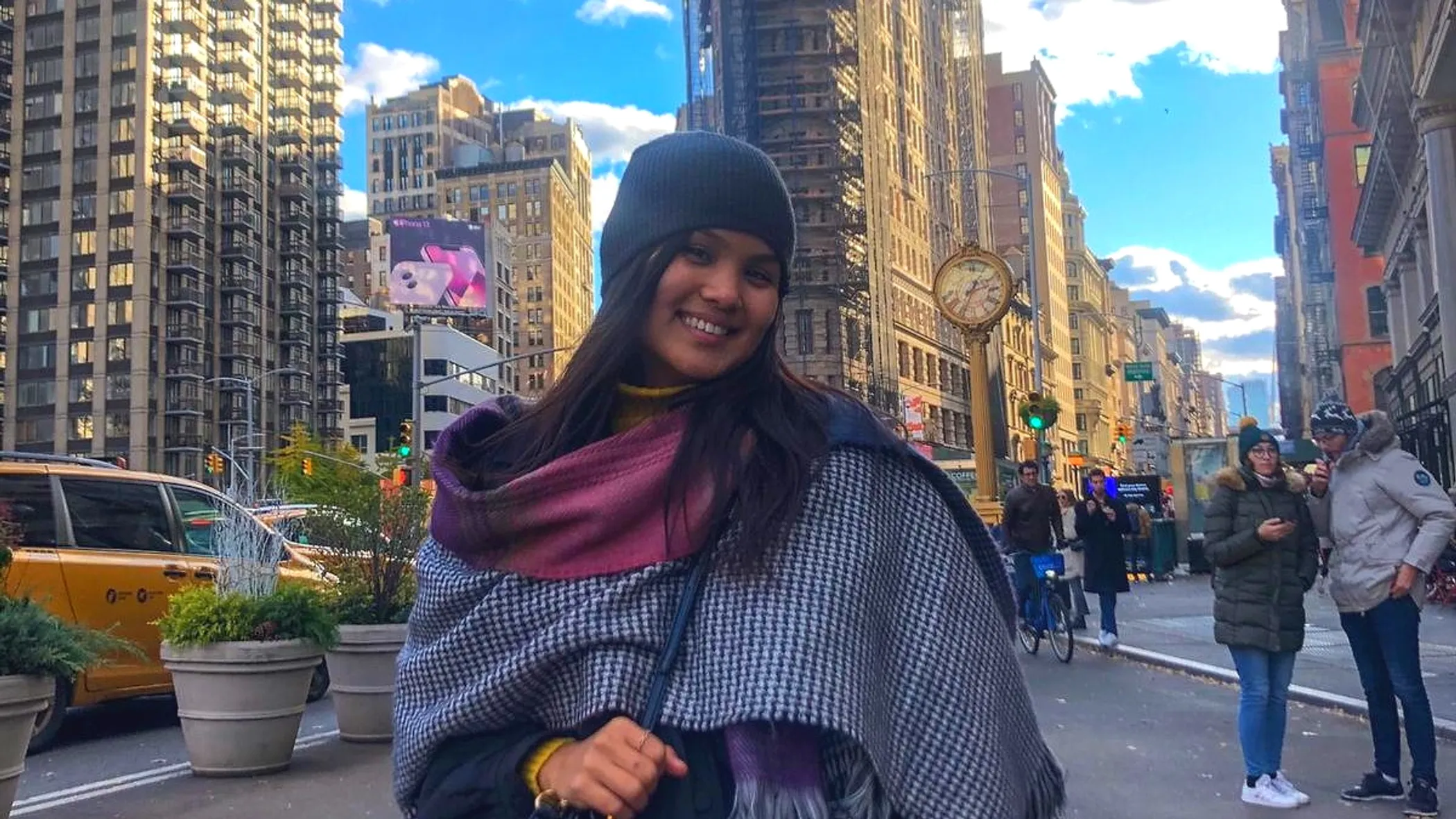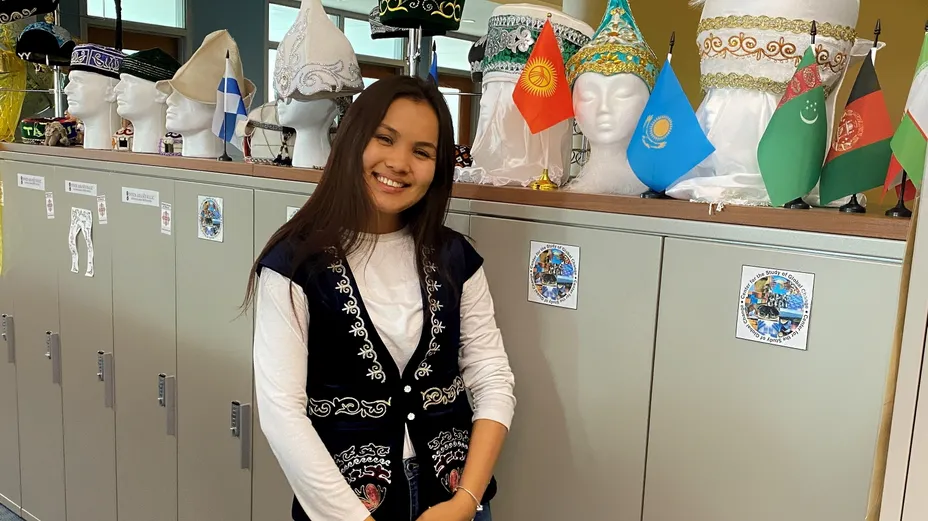Karaganda State University alumna, Moldir Orazbayeva, teaches the Kazakh language at Indiana University in Bloomington after winning a Fulbright FLTA (Foreign Language Teaching Assistant), one of the most prestigious international scholarships in the world. The university’s Department of Central Eurasian Studies is one of the largest in the United States with over 100 languages being offered and taught. The 28-year-old, @mollchik talked to QazMonitor about Americans learning Kazakh, stereotypes, and Nauryz in Indiana.
“I am lucky that I won the Fulbright scholarship because it is given to only one or two people every year. I found out about this program on the website of the U.S. Embassy in Kazakhstan. There was also a great professor named Valerie Sartor at Karaganda Buketov University who was a ‘Fulbrighter’ herself. While I was working as an English and Chinese teacher at KarSU, she inspired me to apply to Indiana University specifically.”
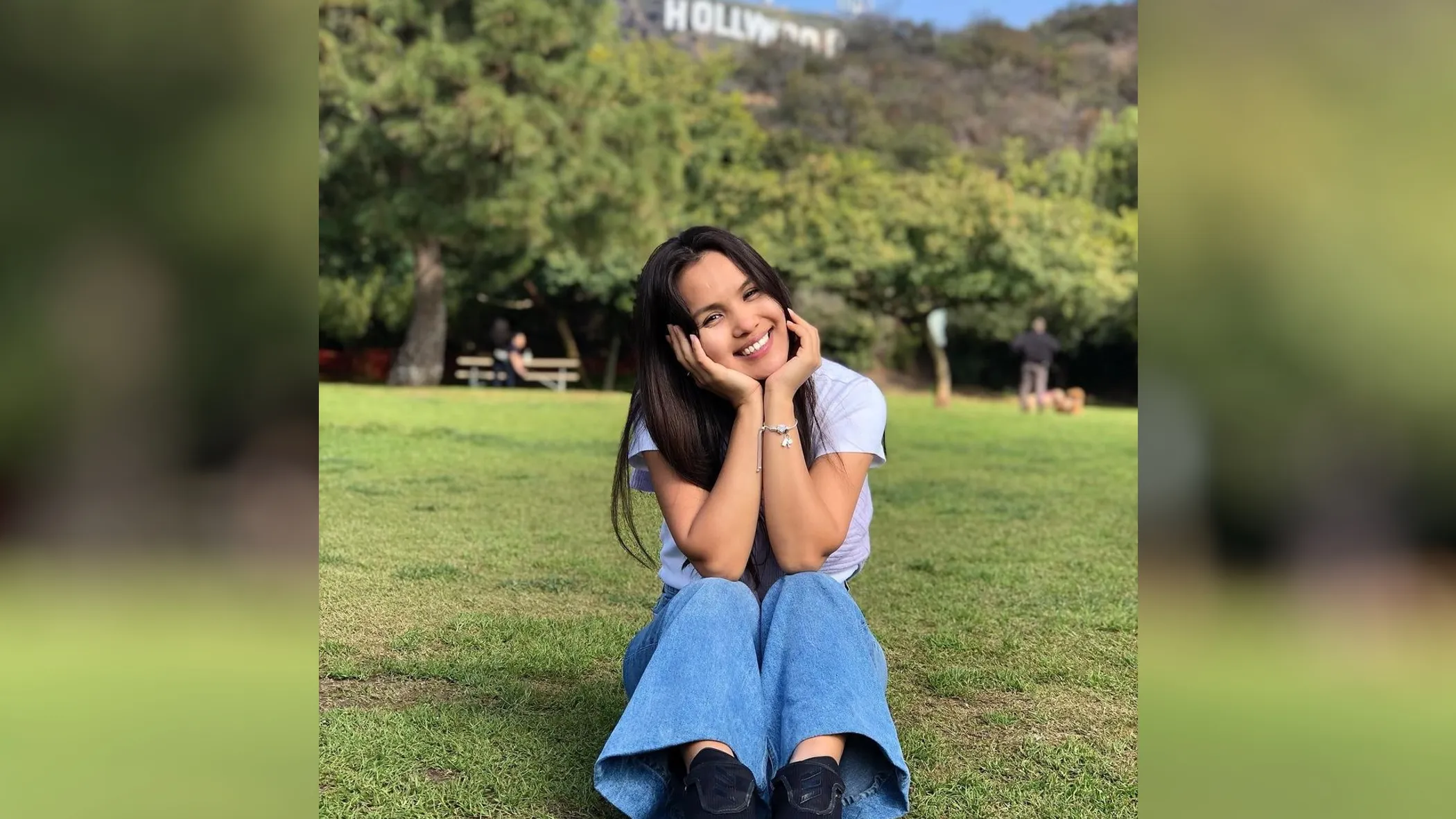
How Americans learn Kazakh
Q: Is Kazakh Language a compulsory subject or an elective? How many students are learning it?
A: “Many express their interest in our culture, traditions and language. I have three groups of talented and curious Americans who want to learn to speak Kazakh.
Students who specialize in the Central Asian region are required to choose a Central Asian language to study. My students chose Kazakh, which makes it a required course. But there are also students who study for fun and to travel around our country.”
Moldir admits that one of her students admires the Kazakh culture so much so that “he even wears caps and hoodies featuring Kazakh elements. He is fond of our hockey players and their uniforms.”
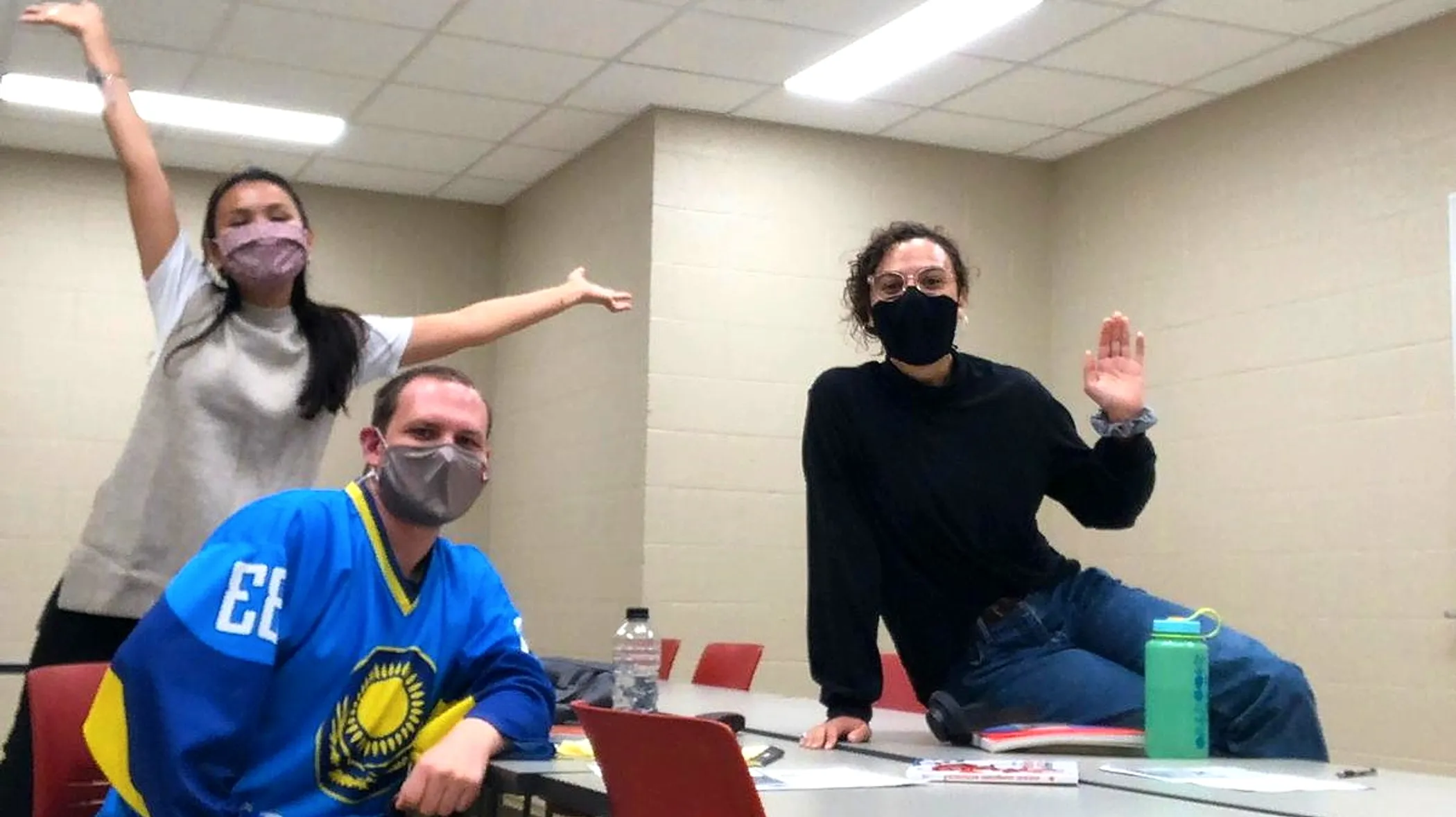
Q: What do they find difficult about the Kazakh language?
A: “American students have difficulty in phonetics and vowel harmony.
Our language is full of special sounds that do not exist in English. For example: Ү, Ө, І, Қ,Ә. But I came up with a very easy way for them to remember. I associate each letter with a word, for example, ‘ү-үй, ұ-ұя, і-ілгіш’. So, I use these memory tricks whenever I teach a new word, and my talented students get it right away.
The Kazakh language also has a huge number of beautiful words that cannot be translated. One time I explained the meaning of the common phrase ‘тәлім тәрбие’ with example images and videos since my class has a no-English policy. My students thought it meant ‘education’, but it has the connotation of ‘knowledge’. Another example is when the students learned the phrases ‘ән айту, өлең айту’, they noticed that we say ‘say a song’ instead of ‘sing a song’.”
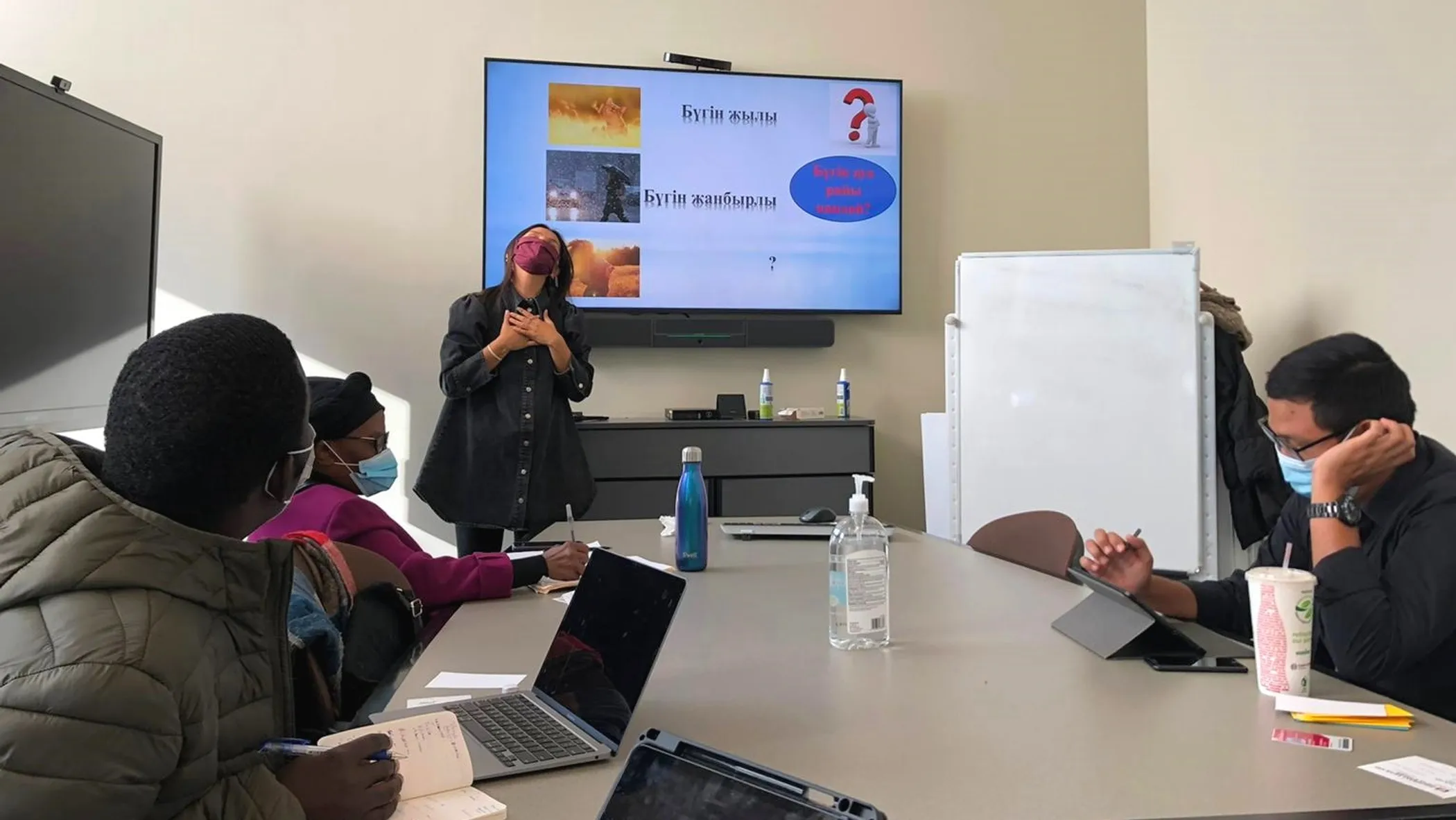
Kazakh vs. American students
Q: As a teacher, what are some of the differences between Kazakh and American students?
A: “I wouldn't say there's much of a difference. One characteristic of American students is that they don't hesitate to ask questions if they don't understand something, whereas Kazakh students are too shy to ask because they don’t want to bother the teacher. I've always taught my Kazakhstani students to ask questions and get over their shyness, so eventually they open up.
For example, when I had a Zoom class with the Kazakh and American students together for a conversation hour, there was a noticeable difference. The American students easily turned on their cameras and sound, but the students from Kazakhstan did not turn on their cameras and sat with only their microphones on. But they all had the same eagerness and passion for language learning.”
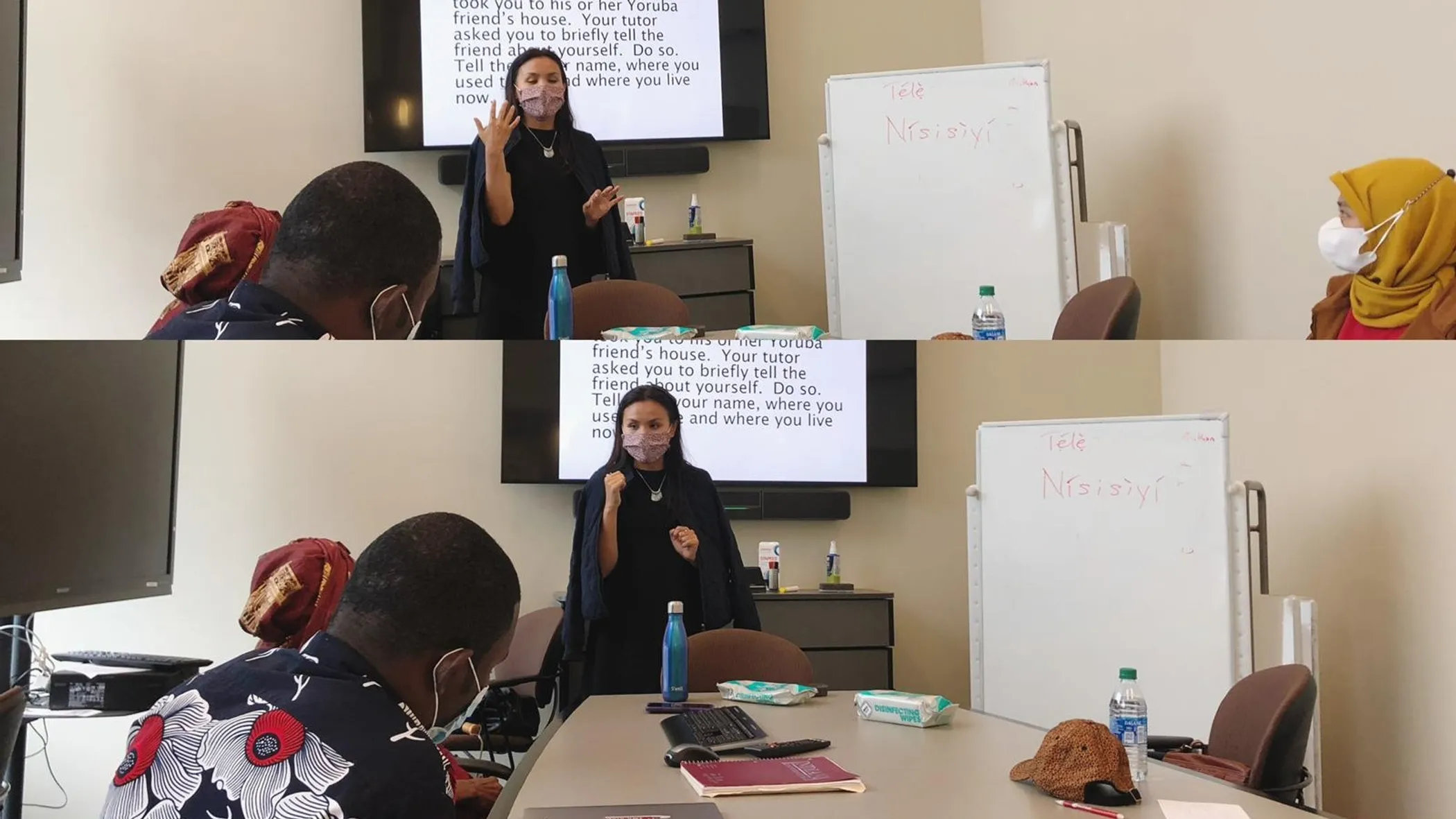
Nauryz in Indiana
Q: Are you planning to celebrate Nauryz with your students? Two years ago, you even had a plov cook-off for Nauryz.
A: “Our department plans to have a full-fledged concert program since it's a worldwide holiday. But fewer people than before are invited due to the COVID restrictions. The Silk Road Ensemble from Bloomington will perform. The holiday will be organized by Indiana University's “Nauryz” Student Association, which mostly consists of American students interested in our culture.”
As for Moldir’s personal contribution to the holiday, she plans on making baursaks for the students, who call the traditional Kazakh snack ‘puffy donuts.’
Q: Speaking of our country, what was the most unusual question you were asked about our country while in the States?
"Some of them are: ‘why are you all so different?’ while looking at pictures of Kazakhs, ‘why do you all know Russian?’ when they hear me speak Russian, ‘where is Kazakhstan?’ since American schools don't talk much about Central Asia in geography class, ‘does everyone in Kazakhstan speak English as perfectly as you do?’ when they hear me speak English. But my least favorite one of all is ‘Is the movie Borat accurate?’”
